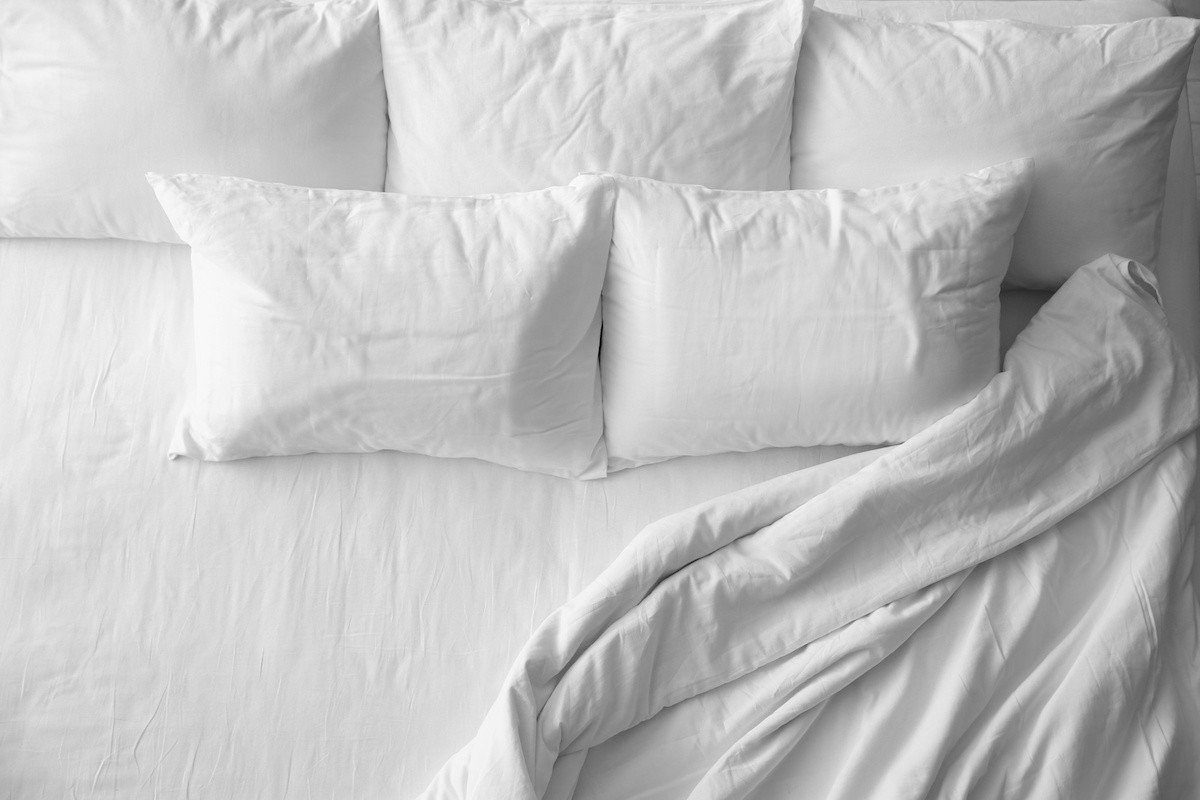Night Sweats: How to Alleviate Night Sweats
Written by MasterClass
Last updated: Jun 7, 2021 • 3 min read
From sleep apnea to insomnia, many medical conditions can affect our sleep quality. One of the most common nighttime conditions is night sweats, which has a number of potential causes.
Learn From the Best
What Are Night Sweats?
Night sweats are a medical condition in which a person experiences excessive perspiration while asleep, regardless of environmental factors. Night sweats are often caused by an underlying medical condition, such as menopause, infection, or hormone imbalances, or can arise as a side effect of certain medications.
What Is the Difference Between Night Sweating and Sweating at Night?
Night sweats are different from sweating at night. Occasionally sweating at night is usually the result of environmental factors, like a heavy blanket, tight-fitting pajamas, or a hot bedroom. Removing the blankets, wearing looser pajamas, and using a fan to encourage air circulation can usually remedy the situation. Night sweating is typically linked to an underlying medical condition. The extreme perspiration from night sweating can permeate clothing and even bedding.
5 Possible Causes of Night Sweats
Common causes of night sweats include:
- 1. Hot flashes. Hot flashes (sometimes called hot flushes) are periods when a person’s body temperature rises, leaving them feeling flushed or sweaty. When these hot flashes occur during sleep, they can cause night sweating. Some people may experience hot flashes, but they’re most common in the various stages of menopause (whether perimenopause, menopause, or postmenopause). Outside of menopausal hot flashes, they may also occur in people who are pregnant or have recently given birth, or those who experience anxiety.
- 2. Infections. Many infections—whether viral, bacterial, or fungal—include common symptoms like fever and overheating, which can cause night sweats in the infected person.
- 3. Medications. Certain medications may trigger or increase the probability of night sweats as a side effect, including antidepressants (specifically selective serotonin reuptake inhibitors or SSRIs), steroids, and over-the-counter fever reducers, like aspirin and acetaminophen.
- 4. Hormone imbalances. The hypothalamus is the body’s temperature regulator. This part of the brain also plays a vital role in your endocrine system, which controls hormone regulation. Medical conditions that affect hormones, including hyperthyroidism (hyperactive thyroid) or hypoglycemia (low blood sugar) can be linked to the prevalence of night sweating. People undergoing hormone therapy may also experience night sweating.
- 5. Acid reflux. Acid reflux, also called gastroesophageal reflux disease or GERD, is a digestive disorder in which stomach acid enters and irritates the food pipe. Acid reflux can cause night sweating or heartburn during sleep.
4 Tips for Alleviating Night Sweats
If you’re experiencing night sweats, there are a few ways to alleviate them:
- 1. Consult a professional. Since night sweating has so many potential causes, the best way to find relief is to consult a medical professional. The Mayo Clinic recommends that you see a doctor for night sweating if your symptoms occur regularly, disrupt your sleep, or accompany other concerning symptoms like fever, weight loss, pain, or diarrhea.
- 2. Limit alcohol, caffeine, and spicy foods. Alcohol, caffeine, and spicy foods can cause your body temperature to increase dramatically, which can make you feel feverish or sweat profusely. Avoid these substances, especially two to three hours before bed, to limit their effects during sleep.
- 3. Try meditation techniques. Meditation can reduce your heart rate and lower your body temperature to a manageable level. Consider employing practices like breath control, muscle relaxation, and gentle stretching before bed and any time you wake up with night sweats to help alleviate the symptom.
- 4. Keep your sleeping environment cool. While a hot room or stuffy pajamas aren’t the cause of night sweats, they may exacerbate the problem, so keeping yourself cool at night can help limit the chances of triggering your night sweats. Turn down the temperature before bed; avoid tight-fitting pajamas in favor of loose, flowy ones; take a sip of cool water before bed; and opt for natural, breathable fabrics for your pajamas and sheets.
Want to Learn More About Catching Those Elusive Zs?
Saw some of the best darn logs of your life with a MasterClass Annual Membership and exclusive instructional videos from Dr. Matthew Walker, the author of Why We Sleep and the founder-director of the Center for Human Sleep Science at the University of California, Berkeley. Between Matthew’s tips for optimal snoozing and info on discovering your body’s ideal rhythms, you’ll be sleeping more deeply in no time.
